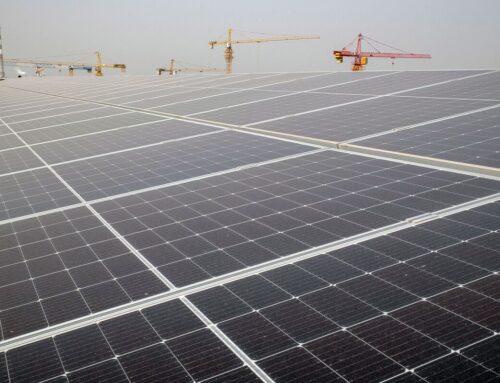DC Councilmember pushes for solar canopies to expand renewable energy and provide shade
March 31, 2025
The council is cautioned that canopies are expensive to build, maintain and protect from vandalism.
WASHINGTON — Ward 6 Councilmember Charles Allen is calling for a major expansion of solar canopies in the District, arguing that the technology offers a sustainable way to generate electricity while also providing much-needed shade in public spaces.
Allen is pushing legislation that would require the city to identify at least 20 new locations for solar canopy installations. The initiative aims to address both energy needs and urban heat concerns by targeting sites such as playgrounds, bus shelters, and parking lots.
“Ask any parent in D.C. what it’s like to take their kids to a playground between May and September, and you’re likely to get two answers: It’s too hot, and there’s no shade,” Allen said. “This makes some of our public spaces unusable for significant parts of the year.”
An example of the kind of solar development Allen envisions can be seen outside Northwest Stadium in Landover, Maryland, where large solar canopies cover a parking area. These structures not only generate clean electricity but also provide shaded, covered parking, making efficient use of already-paved spaces without the need to develop open land.
However, the District’s Department of General Services (DGS) has expressed concerns about the feasibility of widespread solar canopy installations. At a recent hearing, officials pointed out that canopies are costly to build and maintain. Additionally, for projects to be viable, they must generate electricity at a minimum scale of 40 kilowatts—something difficult to achieve in smaller spaces like bus shelters or playgrounds.
In addition, Allen was cautioned that accessible solar sites can be targets of vandalism.
Despite these concerns, Allen remains optimistic, noting that the city has built only eight solar canopy sites in the past decade and should have little trouble identifying 20 additional locations.
His proposed bill will be reviewed by the D.C. Council’s Transportation and Environment Committee before moving forward to a vote, though a date has not yet been set.
If passed, the legislation would require the Department of Energy and Environment (DOEE) to conduct a feasibility study on solar canopy locations by 2026. The study would evaluate factors such as energy generation potential, shade benefits, installation costs, and logistical challenges. Starting in fiscal year 2027, funding for solar canopies would be incorporated into the District’s capital improvement plan, and grants would be available for private property owners interested in installing solar canopies. By 2030, all new capital projects where solar canopies are feasible would be required to include some level of solar canopy installation.
According to a summary of the bill, Allen’s proposal aligns with D.C.’s broader goals of expanding renewable energy, reducing heat exposure, and addressing climate change impacts. If implemented, solar canopies could become a common sight across the city, offering both environmental and quality-of-life benefits for residents.
Search
RECENT PRESS RELEASES
Related Post

